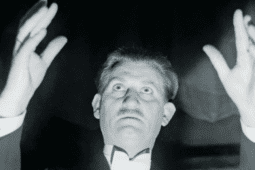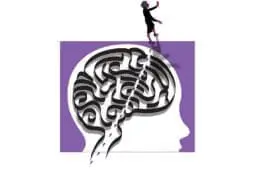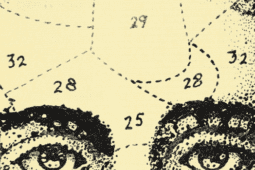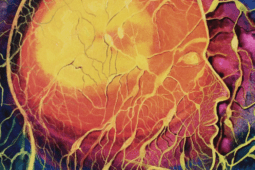Brain
The Heart of Darkness
Plumbing the Nature of EvilPlumbing the eternal question: Why are there bad people? Read more
Editor's Note: September/October 2011
The Mindfulness Binge/Minding MindfulnessI first became aware that there was such a thing as meditation as part of my immersion in the cascade of mind-body-spirit esoterica unleashed by the human... Read more
West Meets East
Creating a New Wisdom TraditionAs mindfulness practices work their way into the psychotherapeutic mainstream, we’re starting to ask more clinically sophisticated questions: Who needs what... Read more
Suggesting Mindfulness
Awakening the Hypnotist WithinAs a clinical intervention, mindfulness is best understood by stripping away its aura of mystical spirituality and understanding the crucial role suggestion... Read more
Shadow Side Of Meditation
Getting Stuck in the Present MomentA Zen teacher describes the benefits and limitations of traditional meditation practice. Read more
Relational Meditation
Moving from Conflict to AttunementWhile meditation is usually considered solitary, two therapists discover that the couples intervention they’ve been using for over 20 years is actually a... Read more
In Search of a Lost Self
Reclaiming Our Missing ExperiencesA primer on the specifics of incorporating mindfulness into therapeutic practice. Read more
Dancing with the Unconscious
A Mindful Approach to CommunicationSometimes conversation isn’t the best way to communicate with clients. There are times when therapists must go beyond the words. Read more
The Attuned Therapist
Does Attachment Theory Really Matter?In recent years, attachment theory, with its emphasis on early bonding, connection and relationship, has exerted as much influence over the field of... Read more
Bringing Up Baby
Are We Too Attached?While therapists may consider some intuitively appealing ideas about human development---like attachment theory---beyond dispute, the researcher's job is to... Read more
The Verdict Is In
The Case for Attachment TheoryFifty years of research has confirmed that the emotional quality of our earliest attachment relationships is central to our well-being as adults. Read more
Breaking Free
A Mind-Body Approach to Retraining the BrainPutting the power of neuroplasticity to work in the consulting room. Read more
Gender and the Brain
Louann Brizendine's Work Stirs New ControversyNeuropsychiatrist Louann Brizendine has stirred up plenty of controversy by arguing that men and women have very different brains. Read more
It's Not About The Food
The Truth About Eating DisordersThe key to working effectively with eating disorders is understanding that starving, bingeing, and purging aren't simply bad habits. For treatment to work, it... Read more
Recipe For Life
Is Attuned Eating the Answer to Diet Failure?Despite the common cultural notion that anyone can successfully lose weight---constantly reinforced by the $60 billion-a-year diet industry---at least 95... Read more
I Think, Therefore I Eat
Skills for Successful DietingFrom the viewpoint of Cognitive-Behavioral Therapy, the reason that dieters so frequently fail to stick to their healthy eating plans is simple: knowing what... Read more
The Case for Energy Psychology
Snake oil or therapeutic power tool?A wizened, seen-it-all psychologist describes how he came to embrace an approach that much of the orthodox psychotherapy world considers the latest incarnation... Read more
Lions Without a Cause
Men's Animal Instincts Don't Fit the Modern WorldLet's face it: love means something quite different to men and women. A look at other species of social mammals offers some remarkable insights into the... Read more
This issue examines whether our increasing knowledge of all those multisyllabic brain processes has really made us more effective practitioners. Read more
The Rise and Fall of PaxMedica
Welcome to the new era of brain-based therapyIn the 1970s, the rise of Prozac, the DSM-III, and "evidence-based" therapies brought the appearance of coherence and order to mental health professions under... Read more
Brain to Brain: January/February 2010
The talking cure goes beyond wordsAs we learn more about the brain, it becomes apparent that therapists need to pay at least as much attention to the body and nervous system (both their own and... Read more
The Brain's Rules for Change
Translating cutting-edge neuroscience into practiceFor the firs time, we're beginning to understand how to directly delete emotional meanings attributed to disturbing past events. Read more
Complexity Choir
The eight domains of self-integrationAs unlikely as it may sound, the mathematics of complexity theory could offer us the key to the elusive secrets of mental health and personal well-being. Read more
Educating Theresa
Sometimes therapy means total commitmentTreating depression requires a commitment to working with mind, body, and spirit. Read more
A Warm Bath for the Brain
Understanding oxytocin's role in therapeutic changeHow to get through to clients caught in fight-flight-freeze mode. Read more
Reversing Chronic Pain
Ten Steps to Reduce SufferingMore and more chronic pain patients are being referred to therapists after their physicians conclude that they show every appearance of being healed. Read more
1. Ride the Rhythms of Rest Fine-tune your circadian rhythms with exposure to morning light. Regularly engage in rest breaks and practices. Consider daily... Read more
Brain to Brain
Applying the Wisdom of Neuroscience in Your PracticeThis article first appeared in the September/October 2008 issue. Anyone who’s ever worked with trauma survivors knows the therapeutic challenge of... Read more
It's a Jungle in There
We're Not as Evolved as We ThinkThe human brain is an anachronistic menagerie that confronts the psychotherapist with the challenge of treating a human, a horse, and a crocodile, all... Read more
The Art of Self-justification
We're all at the mercy of cognitive dissonanceFar from being a relic of Psych 101, the theory of cognitive dissonance may have more relevance in understanding today's world than ever. Read more






















